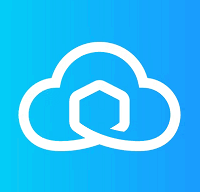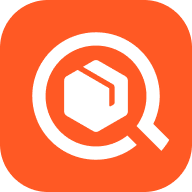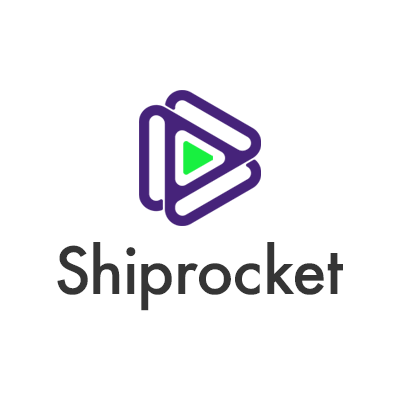Yes, most shipment tracking software is compatible with many devices and platforms. Desktop computers, laptops, tablets, and smartphones are among the devices covered. The program is often web-based, which means that it can be accessed using any internet browser and does not require a specific operating system. This allows users to track shipments while on the go and stay up to date on their delivery from any device.
List of 20 Best Shipment Tracking Software
AfterShip is a courier management system that simplifies your delivery operations with accurate data and timely updates. Utilizing advanced route optimization, it enables you to track your couriers exact location in real-time, while automatically sen...Read More AfterShip
Onfleet is a delivery management solution for businesses. With features like real-time tracking, optimized routes, and seamless driver communication, Onfleet streamlines logistics and improves efficiency. Increase productivity, lower costs, and enhan...Read More Onfleet
SellerMobile is tool designed to elevate your Amazon selling game. Our cutting-edge analytics, robust inventory management, and automated repricing capabilities offer valuable insights, streamline operations, and optimize profits. With customizable a...Read More SellerMobile
AuditShipment is a Shipment Tracking Software designed for Enterprises, SMEs, and StartUps. Our advanced platform, accessible through the web and Android, provides a seamless solution for tracking and monitoring shipments. With features such as Alert...Read More AuditShipment
Track Me Fast is the go-to parcel tracking software for all your shipping requirements. Easily monitor the status of your deliveries with our streamlined system that gathers data from various shipping carriers and couriers worldwide. No registration...Read More Track Me Fast
Saga Suite, the innovative track and trace software for industries such as seafood, tobacco, and pharmaceuticals. Improve transparency, visibility, and traceability in your supply chain with our advanced suite. Gain real-time tracking and monitoring...Read More Saga Suite
Mojro - Executewyse solution for streamlining your supply chain! With advanced features like smart assignment, automated routing, and real-time tracking, this software significantly reduces operating costs. With a driver app, tasks are seamlessly ass...Read More Mojro - Executewyse
Sendcloud is a shipping solution for online retailers. With its advanced features such as automated label generation, support for multiple carriers, and seamless tracking, Sendcloud simplifies the logistics process. It ensures cost-effective shipping...Read More Sendcloud
Welcome to TrackingMore is the ultimiate multi-carrier tracking software for your e-commerce business. With a seamless integration of over 1200 carriers, our platform offers a comprehensive solution for tracking your shipments. Our powerful tracking...Read More TrackingMore
WPCargo is a leading courier management solution, designed to streamline shipping processes for businesses. Our software is free to use, helping to reduce errors and improve efficiency in your operations. With advanced features such as real-time trac...Read More WPCargo
GigaTrak is a barcode tracking software for efficient asset, tool, document, and inventory management. Our solution, available in both cloud-based and self-hosted options, offers user-friendly interfaces, advanced capabilities, and excellent customer...Read More GigaTrak
WeSupply Labs solution for online merchants looking to boost customer satisfaction. Our all-inclusive services are designed to drive sales, simplify post-purchase procedures, and foster lasting customer loyalty. Seamlessly incorporating advanced feat...Read More WeSupply Labs
ShippingEasy, a top shipping solution, streamlines order fulfillment and integrates smoothly with popular e-commerce platforms. Enjoy discounted shipping rates and automated workflows that make managing shipping a breeze. With real-time tracking and...Read More ShippingEasy
ShipRocket is a software solution that simplifies your shipping, fulfillment, and inventory management tasks. It enables you to save on costs and effortlessly connect with various shipping carriers. By leveraging ShipRocket, you can seamlessly ship w...Read More ShipRocket
ShipHawk is a warehouse and fulfillment solution designed to streamline your operations. Our customizable platform simplifies every step, from receiving to shipping, with advanced features like seamless integration and shipping intelligence. With Shi...Read More ShipHawk
Magaya is a logistics solution for your business. This all-in-one software streamlines and enhances every aspect of your supply chain, offering streamlined automation and up-to-date tracking for effective and customer-oriented operations. With Magaya...Read More Magaya
Precision, the premier software by QAD Adaptive Applications, empowers manufacturers and supply chain organizations with unparalleled operational excellence. Leveraging cutting-edge analytics, AI, and proven industry strategies, this solution empower...Read More Precision
Pataa is a address-finding app for India! With its cutting-edge technology, Pataa promises to provide 100% accurate location details. Say goodbye to confusion and fuss while navigating, as Pataa acts as your trusty guide. Just mention nearby landmark...Read More Pataa
ShipTrack is a logistics solution built to streamline operations and increase productivity with real-time tracking and automated processes. Its user-friendly design and versatile features make it suitable for businesses of all sizes. Say farewell to...Read More ShipTrack
Roambee is a asset tracking solution. Say goodbye to expensive hardware, data plans, and complicated set up. Monitor all your containers, goods, equipment, and packages seamlessly, whether in transit or storage. Roambee allows for efficient managemen...Read More Roambee
Learn More About Shipment Tracking Software
- What Is Shipment Tracking Software?
- What Are The Recent Trends In Shipment Tracking Software?
- Benefits Of Using Shipment Tracking Software
- Important Factors To Consider While Purchasing Shipment Tracking Software?
- What Are The Key Features To Look For In Shipment Tracking Software?
- Why Do Businesses Need Shipment Tracking Software?
- How Much Time Is Required To Implement Shipment Tracking Software?
- What Is The Level Of Customization Available In Shipment Tracking Software?
- Which Industries Can Benefit The Most From Shipment Tracking Software?
- Conclusion
What Is Shipment Tracking Software?
Shipment tracking software is a useful tool for firms to effectively monitor and manage their supply chain operations. This software gives real-time updates on the status of packages, parcels, and shipments as they travel from point of origin to destination. With the rise of e-commerce and consumer desire for faster and more transparent shipping, shipment tracking software has become a must-have tool for businesses of all kinds.
It provides a variety of capabilities, including automatic tracking, delivery confirmation, and delivery alerts, which can significantly improve customer satisfaction and manage logistical operations. One of the primary benefits of shipment tracking software is the ability to provide real-time visibility throughout the whole delivery process. This implies that firms can follow their goods at every stage of the route, from warehouse to consumer doorstep.
This kind of openness not only fosters customer trust, but also enables firms to swiftly identify and handle any difficulties that may develop during transit. Furthermore, shipment tracking software includes a number of capabilities that can significantly increase supply chain efficiency. Businesses, for example, can set up automated tracking and delivery alerts, which reduces the need for manual updates while also providing customers with timely shipment information.
This not only saves time and reduces human mistake, but it also enables proactive communication and better control of client expectations. Another key feature of shipment tracking software is its ability to interact with other systems, such as inventory management and order fulfillment software. Businesses can quickly maintain inventory levels, manage orders, and monitor shipments using a single platform that integrates seamlessly.
This not only decreases the possibility of errors, but also improves overall productivity and cost-effectiveness. When looking for shipment tracking software, seek for a solution with an easy-to-use interface, customisable capabilities, and dependable customer service. It should also be compatible with other software systems, have strong security measures in place, and provide thorough analytics and reporting to assist businesses in making data-driven decisions.
What Are The Recent Trends In Shipment Tracking Software?
Shipment tracking software has evolved fast in recent years, driven by an increasing desire for efficient and transparent supply chain management. As businesses become more reliant on fast and accurate shipment monitoring, software providers have been quick to adapt and improve.
Let's explore, we'll look at the latest trends in shipment tracking software and how they can help your business.
1. Real-Time Tracking: One of the most important advancements in shipment tracking software is real-time tracking. This service enables businesses to track their shipments in real time, delivering up-to-date information on the location and condition of their products. Real-time tracking not only ensures timely delivery, but also allows for swift decision-making and problem-solving in the event of any delays or complications.
2. Integration Of IoT And AI: With the advent of the Internet of Things (IoT) and Artificial Intelligence (AI), shipment tracking software has evolved even further. Integrating these technologies enables data-driven decision-making, predictive analytics, and automated notifications to anticipated delays or interruptions. These characteristics can considerably boost the efficiency and dependability of your supply chain.
3. Mobile Accessibility: Another development in shipment tracking software is the emphasis on mobile accessibility. As more business transactions take place via smartphones and tablets, it is critical to have a mobile-friendly cargo monitoring system. Mobile apps can deliver real-time updates on the fly, allowing businesses to control shipments from anywhere and at any time.
4. Multi-Carrier Support: In today's global marketplace, businesses frequently collaborate with various carriers to carry their goods. Shipment tracking software that supports numerous carriers avoids the need to use separate systems for each carrier. This seamless integration speeds up the tracking process, lowers errors, and increases overall efficiency.
5. Customization And Integration Capabilities: Shipment tracking software with customisation and integration options is becoming increasingly popular among enterprises. This enables enterprises to modify the software to their own requirements and combine it with other tools and systems that they already use. Customization and integration improve process efficiency, data quality, and overall supply chain management.
Benefits Of Using Shipment Tracking Software
Shipment monitoring software has become an indispensable tool for organizations seeking to streamline their shipping procedures and improve customer experience. This program has transformed the way shipments are managed and tracked by leveraging cutting-edge technology and real-time tracking.
Let's explore, we'll look at the advantages of using shipment tracking software and how it may improve your entire shipping experience.
1. Real-Time Tracking: One of the most significant benefits of using shipment tracking software is the ability to monitor your shipments in real time. This means you can track the exact position and status of your items at any moment, giving you complete visibility and control over your shipments.
2. Increased Efficiency: Use shipment tracking software to optimize your shipping process and decrease manual tasks. Many processes are automated by the software, including the generation of shipping labels, tracking numbers, and updating shipment statuses, saving you time and resources.
3. Improved Customer Service: In today's e-commerce world, clients want timely and accurate shipment information. Shipment tracking software enables you to deliver real-time tracking information to your clients, ensuring their peace of mind and improving their overall experience.
4. Cost-Effective: By streamlining your shipping process and decreasing manual duties, shipment tracking software can help you save money on labor and operations. Furthermore, having real-time tracking information reduces the likelihood of missing or delayed goods, saving you money in the long run.
5. Increased Productivity: Shipment tracking software offers thorough analytics and reporting, offering you vital information about your shipment habits and performance. This information can help you identify areas for improvement and make data-driven decisions, resulting in increased productivity.
6. System Integration: Shipment tracking software may work easily with other corporate systems like accounting, inventory, and CRM. This creates a more streamlined and effective workflow by eliminating the need for human data entry and lowering the chance of errors.
7. Secure And Dependable: Shipment tracking software employs extensive security measures to safeguard your sensitive shipment data. With dependable data backup & storage, you can be confident that your information is secure and immediately available when you need it.
Important Factors To Consider While Purchasing Shipment Tracking Software?
When it comes to choosing shipment tracking software, there are a few key elements to consider before making a purchase. As a buyer, you want to be sure you're investing in software that will match your specific requirements and deliver a consistent tracking experience for your shipments.
To help guide your purchasing process, keep the following crucial points in mind:
1. Features And Functionality: The software's features and functionality should be considered initially. You want to ensure that it includes all of the tools you need to track your shipments, such as real-time tracking, automatic notifications, and customisable reports. Consider any unique features that your organization need, such as multi-carrier support or connectivity with existing systems.
2. User-Friendliness: The software should be simple to use, especially for individuals with little or no technical knowledge. A well-designed and intuitive interface can ultimately save you time and frustration. Look for demos or free trials to acquire a sense of the user experience before making a purchase.
3. Integration Capabilities: If you currently have an order management or inventory management system in place, you must ensure that the shipping tracking software is compatible with it. This will allow for more efficient data transport and lessen the possibility of errors.
4. Customization Options: Because each organization has distinct shipping requirements, it is critical to assess the software's level of customization. Can you customize it for your specific workflows and branding? Can you add custom fields or tags to the tracking information? Customization options can improve the efficiency and personalization of the tracking process.
5. Scalability: Your company may grow and evolve in the future, so selecting software that can scale with it is critical. Consider the pricing plans and whether they provide features that meet your anticipated future needs.
6. Customer Support: If you have any problems or inquiries, you should be able to contact a reliable customer service representative. Look for software vendors who give prompt and helpful support, whether by live chat, phone, or email.
7. Reviews And Reputation: Do not rely solely on information provided by the software provider. Take some time to study reviews and testimonials from other businesses that have used the software. This can provide vital information into the software's performance and dependability.
By taking these aspects into account, you may select the best shipment tracking software for your company's needs and to improve your tracking process. Remember to properly investigate your options and take advantage of free trials or demos before making a final decision. With the appropriate software, you can expedite your shipping process and increase customer satisfaction.
What Are The Key Features To Look For In Shipment Tracking Software?
When it comes to selecting the best shipment tracking software, you want to be sure it fits all of your business requirements and helps you optimize your shipping process.
To make an informed decision, the following are the important characteristics to look for in shipment tracking software:
1. Real-Time Tracking: One of the most important characteristics to look for in shipment tracking software is real-time tracking. This lets you track the status of your shipments in real time, from pickup to delivery. It keeps you updated on the exact location and expected delivery time of each parcel.
2. Multi-Carrier Support: Confirm if the software supports multiple carriers, including national and international shipping firms. This allows you to select the most cost-effective and efficient carrier for each cargo depending on variables such as destination, speed, and pricing.
3. Customizable Notifications: Look for software that allows you to create customized notifications for important events like package pickups, departures, and deliveries. This keeps you and your customers updated at all stages of the shipping process, resulting in a better customer experience.
4. Automated Tracking Updates: Manual updates are time-consuming and error-prone. Choose software that provides automated tracking updates that are seamlessly integrated with carrier systems. This ensures the accuracy and timeliness of your tracking data.
5. Easy Integration: Your shipment tracking software should work seamlessly with your e-commerce platform and other order management tools. This eliminates the need for manual data entry, lowering the chance of errors and expediting your shipping process.
6. Data Analytics: Look for software that offers thorough data analysis of your shipping performance. This will allow you to identify areas for development and make more educated decisions about your shipping strategy.
7. Mobile App Access: With a mobile app for your shipment monitoring software, you can keep track of your shipments while on the road. It offers simplicity and flexibility, particularly for businesses that handle a significant volume of shipments.
8. Exception Management: Select software that has exception management, which allows you to handle unforeseen occurrences like delays or delivery issues efficiently. This tool allows you to immediately detect and rectify difficulties, resulting in a seamless delivery procedure.
Keeping these crucial aspects in mind will allow you to choose the best shipment tracking software for your organization. Consider your individual needs and select the one that provides the most comprehensive and effective answer.
Why Do Businesses Need Shipment Tracking Software?
As organizations grow and expand, efficient shipping tracking becomes increasingly important. This is where shipment tracking software comes into play, offering businesses a comprehensive solution for tracking their shipments from beginning to end. One of the primary reasons why organizations use shipment tracking software is to get greater visibility and control over the entire delivery process.
Businesses may use real-time updates and notifications to track the progress and location of their shipments, ensuring they arrive on schedule. Furthermore, shipment tracking software enables organizations to streamline their logistical processes. Businesses may enhance productivity and save time by automating operations like data entry, tracking, and reporting.
This leads to increased efficiency and cost reductions, which are critical components of any business's success. Shipment tracking software enables organizations to improve their customer service. Businesses that can give accurate and up-to-date information regarding the status of their shipments can answer to consumer inquiries quickly and provide a great delivery experience. This can improve client happiness and loyalty, resulting in greater sales and revenue.
Furthermore, shipment tracking software enables organizations to detect bottlenecks and inefficiencies in their logistical systems. Businesses may make more efficient decisions and optimize their operations by examining data and trends. In today's fast-paced corporate world, quick delivery is critical for keeping a competitive advantage. Shipment monitoring software allows organizations to satisfy customer expectations and assure on-time delivery, thereby improving their reputation and developing confidence with their consumers.
How Much Time Is Required To Implement Shipment Tracking Software?
The installation time for shipment tracking software varies depending on a number of factors, including the complexity of your shipping procedures, the size of your firm, and the specific features and customization required by the software. However, it takes approximately 2-3 weeks to completely integrate shipment tracking software into your business processes.
During the implementation process, your team will need to configure the software, integrate it with your current systems, and teach your employees on how to utilize it effectively. This usually consists of a mix of on-site training, webinars, and online support resources offered by the vendor. Some shipment tracking software also allows for a quick start implementation, which may be completed in as little as 48 hours.
This option provides a pre-configured solution that is ready for immediate usage, but it may require further customization to meet your unique requirements. To guarantee a seamless and timely implementation, thoroughly plan your requirements and communicate them with the software vendor ahead of time. This will help to streamline the implementation process and reduce any delays.
Overall, the implementation time for shipment tracking software is minimal when compared to the long-term benefits it may provide to your company, such as increased efficiency, better visibility into your shipments, and more customer satisfaction. As a result, investing time and resources into adopting shipment monitoring software can be quite useful to your organization in the long term.
What Is The Level Of Customization Available In Shipment Tracking Software?
The level of flexibility possible in shipment tracking software varies by software supplier. However, most credible shipment monitoring software solutions provide a high level of customisation to match the specific demands of enterprises. One of the most important aspects of shipment tracking software customization is the ability to personalize tracking dashboards and data sections.
This enables firms to track and evaluate the data that is most important to their operations. Some software even allows for full customization of the user interface, allowing firms to create their own branded tracking platform. Another critical component of customisation is the ability to interface the software with current systems like enterprise resource planning (ERP) and warehouse management systems (WMS).
This seamless connectivity enables a smooth flow of data while eliminating the need for human data entry. Furthermore, several shipment tracking software systems provide configurable notifications and alerts. Businesses can set up notifications for certain events or milestones in the shipping process, such as item delivery or delays. Some software also allows you to produce bespoke reports and analytics.
This enables firms to track critical KPIs and performance indicators, resulting in significant insights for improving shipping procedures. Overall, the level of flexibility offered in shipment tracking software enables organizations to personalize the software to their individual requirements while streamlining their operations. To select the solution that best meets your business needs, thoroughly consider the customization choices provided by various providers.
Which Industries Can Benefit The Most From Shipment Tracking Software?
Shipment tracking software can be a useful tool for a variety of businesses, offering real-time updates and visibility into the status of their shipments.
The following industries can gain the most from deploying shipment tracking software:
1. E-commerce: In the age of online shopping, shipment monitoring software is essential for e-commerce enterprises. It enables them to keep track of their orders, manage inventories, and provide precise delivery predictions to their consumers. This, in turn, results in increased customer satisfaction and retention.
2. Logistics And Transportation: Shipment tracking software is a game changer in the logistics and transportation sectors. Companies may optimize their routes, reduce delivery times, and reduce costs by tracking many shipments at the same time and monitoring their movements.
3. Manufacturing: The timely supply of raw materials and completed goods is critical to the manufacturing industry. Manufacturers can use shipment monitoring software to keep track of their shipments and ensure that they arrive on time and are not delayed, which can lead to production delays and revenue loss.
4. Retail: The retail business is primarily reliant on shipments from suppliers and warehouses to keep their shelves full. Shipment monitoring software enables shops to track their inventory and receive real-time updates on the progress of their deliveries. This can help improve inventory management and prevent stockouts.
5. Pharmaceutical: The pharmaceutical industry works with delicate and time-sensitive items that must be supplied quickly and securely. Shipment tracking software can enable temperature control and monitoring to ensure that the medication reaches safely and on schedule.
6. Food And Beverage: The food and beverage business, like pharmaceuticals, requires cautious handling and monitoring of their shipments. Shipment tracking software can provide temperature and location tracking, ensuring that perishable commodities are kept in the best possible circumstances until they arrive at their destination.
Conclusion
To summarize, selecting the correct shipment tracking software is critical for firms seeking to automate and optimize their logistics processes. Making a decision might be overwhelming when there are so many options available. Businesses can choose the best fit for their specific needs by taking into account crucial elements such as functionality, pricing, usability, and customer service.
It is also critical to evaluate the software's scalability, compatibility, and integration capabilities with other corporate systems. Furthermore, taking into account the software provider's reputation and track record can shed light on the software's dependability and effectiveness. Businesses may identify shipment tracking software that can improve efficiency, cut expenses, and ultimately improve their overall customer experience by conducting extensive research and evaluating various choices. Take the time to properly examine and select the best software for your business, since it can have a big impact on your bottom line.
Shipment Tracking Software FAQ's
Can Shipment Tracking Software Be Accessed Across Multiple Devices And Platforms?
Is Shipment Tracking Software Future-Proof And Adaptable To Emerging Technologies Like AI, Blockchain Or IoT?
Yes, most current shipment monitoring software is meant to be future-proof and adaptable to upcoming technologies such as artificial intelligence, blockchain, and the Internet of Things. These technologies are continually growing and innovating, and shipment monitoring software is keeping pace to improve and expedite the shipping and logistics processes.
Shipment tracking software is leading the way in merging technology like real-time tracking, predictive analytics, and automated updates to make the shipping process more efficient and successful for organizations.
Is There A Free Trial Offered To Assess Shipment Tracking Software Before Committing?
Yes, many shipment tracking software businesses provide a free trial period so that potential users can evaluate the product before committing to a subscription. This trial period normally lasts 14 to 30 days and allows users full access to the software's functionality.
It is an excellent opportunity to evaluate the interface, tracking accuracy, and general functionality to see whether it fulfills your business requirements. Before making a commitment, use the free trial to confirm that the program is a good fit for your organization.
Does Shipment Tracking Software Offer Data Security Features And Meet Regulatory Compliance Standards?
Yes, most reputable shipment tracking software includes sophisticated data security safeguards and adheres to regulatory standards to ensure the safe and secure handling of sensitive shipment data. This includes things like encryption, firewalls, and regular security assessments.
Furthermore, these software solutions are designed to comply with industry-specific requirements, such as GDPR for European countries and HIPAA for healthcare firms. Rest assured that these software solutions will preserve your shipment data.
Can Shipment Tracking Software Integrate Seamlessly With Existing Tools And Platforms?
Yes, most current shipment tracking software is built to work seamlessly with other products and platforms. Shipment tracking software is easily connected with an e-commerce platform, warehouse management system, or ERP software to provide real-time data and updates.
This ensures that all stakeholders involved in the shipping process have access to correct and up-to-date information, hence increasing efficiency and decreasing errors. Furthermore, many shipment tracking software provides APIs and webhooks for additional customization and connectivity with other systems.






















